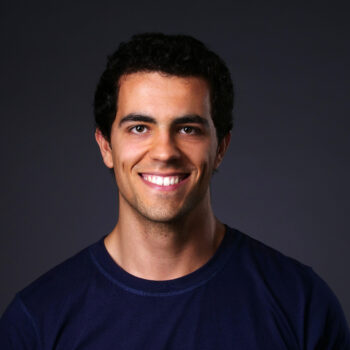
Joaquim Contradanças, MSc
Despite a great passion for Zoology, Joaquim Contradanças chose the Biological Engineering degree to keep open as many career opportunities as possible. He tried to make the bridge with research on Biology by exploring distinct topics and getting a hands-on sense of the daily lab work during his summer holidays. Never missing an opportunity, he worked with Escherichia coli at IGC in a project on synonymous mutations; explored the effects of a viral infection on the aggressiveness of male fruit flies, at the University of Edinburgh; and tested different CRISPR-Cas9 systems as potential therapeutics for Friedreich’s ataxia, at the Massachusetts General Hospital, in Boston. For his master’s thesis, he went to an Evolutionary Developmental Biology lab at the European Molecular Biology Laboratory, in Heidelberg, to study a brain region of the marine annelid Platynereis dumerilii. Overall, he got to know the real life of a scientist and learned how important it is to simultaneously enjoy the theory and the empirical work of a project. For his PhD, he chose to explore animal behavior, embracing the exciting and very interdisciplinary field of Neuroscience. He started the International Neuroscience Doctoral Programme at the Champalimaud Foundation, supported by an FCT fellowship and, since 2020, he is a Boehringer Ingelheim Fonds PhD fellow. He is currently studying associative learning using the zebrafish larva, a tiny animal that allows him to look into neural activity across the entire brain. Altogether, he has learned to persevere and to never let go a good opportunity. As well, he found that there is not a single path to follow to achieve our dream work. Our specific backgrounds should not be a problem, but an asset in such a multidisciplinary world.
